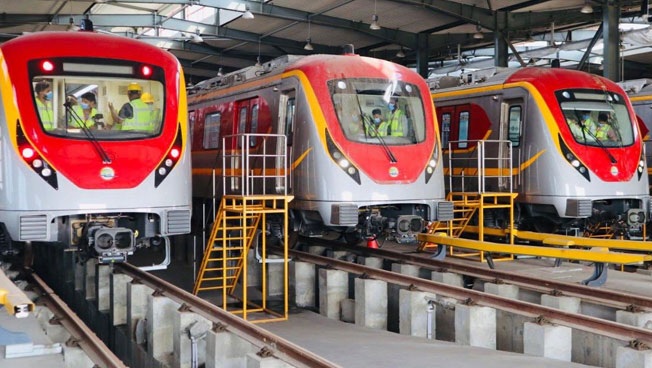The Punjab government has taken a major step toward transforming the Lahore Orange Line Metro into a financially sustainable and environmentally friendly transit system by announcing plans to convert all its stations and stops to run entirely on solar energy. A dedicated 1.6 megawatt solar power plant will be built to supply clean electricity to station infrastructure, including escalators, lighting, platform systems, and ancillary facilities.
Currently, the Orange Line incurs a staggering Rs 1.9 billion per month electricity bill, heavily subsidized by the provincial government. This solar-powered shift is projected to save hundreds of crores of rupees every month, drastically reducing the burden on the public budget and enhancing long‑term operational viability.
Planning for this initiative began in early 2024, in collaboration with national engineering agencies. After detailed feasibility studies under the caretaker transport ministry, the project has moved into its execution phase. Solar installations are slated not only at metro stations but also at depots and stabling yards along the entire route, ensuring end-to-end coverage of power needs.
By replacing conventional grid dependency with onsite solar energy, the government aims to eliminate recurring subsidy costs, strengthen energy security, and align mass transit with Pakistan’s growing focus on renewable energy adoption. This move also sets a precedent for integrating clean power systems into public infrastructure across the province.
The Orange Line was inaugurated in October 2020 and spans 27.1 km with 26 stations, serving an estimated 250,000 riders daily. Switching to solar energy will not only reduce utility costs but also enhance service reliability in the face of power interruptions. Riders can expect uninterrupted station operations, even during load‑shedding, thanks to the energy resilience provided by solar deployment.
This initiative aligns with broader efforts in Punjab to promote solar adoption, as seen at major installations like the 400 MW Quaid‑e‑Azam Solar Park in Bahawalpur. By applying solar at the transit infrastructure level, Punjab is extending the benefits of clean energy to urban systems and achieving both economic and environmental objectives.



Comments (0)
No comments yet. Be the first to comment!
Leave a Comment